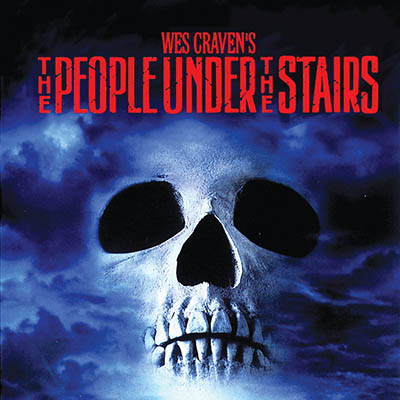In the shadows
‘Dark Places’ and ‘The People Under the Stairs’ make a macabre double feature
Nicholas Hoult and Charlize Theron in 'Dark Places'
Dark Places
There was a time, between the McMartin Preschool abuse scandal in the mid-‘80s and the West Memphis Three trial in 1993, when the public seemed to share a genuine fear of murderous Satanic cults hiding in our midst.
It was a collective mass hysteria fueled by ignorant, God-fearing parents and a media that blamed heavy metal music for corrupting their sometimes sullen, weird, violent and suicidal offspring.
That’s the backdrop for “Dark Places,” the latest film adaptation from Gone Girl novelist Gillian Flynn.
Written and directed by Gilles Paquet-Brenner, “Dark Places” is “Rashomon” meets In Cold Blood, a time-hopping mystery involving the murder of a Kansas family in 1985.
Ben (played by Tye Sheridan as a teen and Corey Stoll as an adult) is convicted of killing his mother, Patty (Christina Hendricks) and two of his three sisters. The third sister, Libby (Sterling Jerins), provides the testimony that puts Ben away for life.
Thirty years later, Libby (now played by Charlize Theron) is on the skids when the money from her ghost-written, tell-all book finally dries up. Desperate for rent, she indulges a group of nerdy, cold-case crime solvers, led by Lyle (Nicholas Hoult, having a lovely day), who fervently believe Ben to be innocent—and are willing to compensate Libby for her deeply suspect memories.
It’s the kind of film that makes you want to read the book. “Dark Places” rides the same pseudo-pulp vein as “Gone Girl” but detours into a different kind of social commentary. The death spiral of independent farms in the ‘80s feeds a Capote-inspired murder mystery—and another indictment of sensationalist news media.
Inevitably, Paquet-Brenner is no David Fincher. His direction is serviceable but bland, and his adaptation relies too heavily on lazy, hand-holding narration. It doesn’t ruin the story, or the intermittently absorbing performances from Theron, Stoll, Hendricks and Hoult, who often shine in individual scenes. But it makes one wish Flynn’s twisted, haunting mystery were in the hands of a more exceptional filmmaker. Like Cary Fukunaga.
Because everything should be directed by Cary Fukunaga.
“Dark Places” opens August 7 at Circle Cinema.

The People Under the Stairs
In the early ‘90s, writer-director Wes Craven was best known as the man who unleashed Freddy Krueger on the world. With 1991’s “The People Under the Stairs,” Craven traded his usual serial killers, zombies and cyborgs for a pair of psychopathic landlords, resulting in a uniquely comedic horror movie.
Fool (Brandon Adams) is a young kid from an LA ghetto living with his tarot-reading prostitute sister (Kelly Jo Minter) and cancer-ridden mom. The last family in the building, they’re in danger of eviction and unable to pay the exorbitant penalties on their late rent—fees designed to get them out so their landlords, the Robesons (Wendy Robie and Everett McGill), can raze the property and build nice, new condos for “clean” (white) people.
The manipulative Leroy (Ving Rhames) persuades Fool to break into the Robesons’ creepy old house, which is rumored to hide a collection of gold coins worth a fortune. Unfortunately, the Robesons are always home, and they’re as fetishistic, backward and bat-shit crazy as evil landlords come.
The film’s an odd duck—“Home Alone” meets “Texas Chainsaw Massacre,” with a Robin Hood indictment of systemic racial inequality, Reagan-era trickle-down economics and religious zealotry. A weird BDSM subtext manifests when McGill (“Daddy”) stalks the cavernous house searching for Fool in head-to-toe studded leather with a shotgun and a ravenous Rottweiler, while “Mommy” (Robie) subjugates their daughter Alice (A.J. Langer) as if she’s a porcelain pet meant only to be fed, dressed and punished for the slightest disobedience.
The demented performances from McGill and Robie, feeding off their “Twin Peaks” chemistry to pleasing effect, are awesomely disturbing. Their unmitigated, murderous racism makes for effective exploitation cinema; it also makes you love and root for Fool all the more as he transforms into a miniature Django.
Craven is in full auteur mode here, perhaps enjoying the autonomy his recent successes had bought. “The People Under the Stairs” unevenly juggles borderline slapstick comedy and Craven’s trademark, gruesome storytelling aesthetics, mixed with socio-political commentary that stands apart from his higher profile works. It’s a creative, delightfully unhinged movie that isn’t quite bad enough to be ironically great but is good enough to have rightfully earned its cult status.
A Blu Ray version of “The People Under the Stairs” arrives with a new transfer and extras August 11 from Shout Factory.
For more from Joe, read his reviews of ‘Creep,’ ‘Mekko’ and ‘A Poem Is A Naked Person.'


.jpg)
.jpg)
